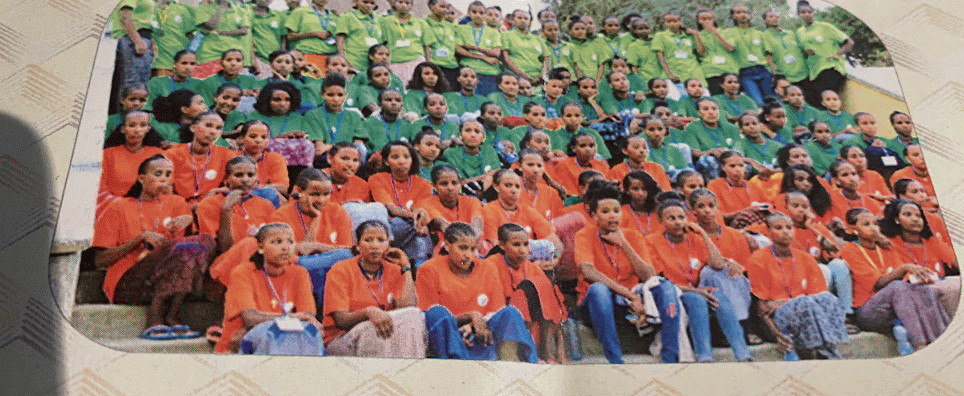
Berri Maida ― Girls’ Hostel and Educational Center
〰️
Berri Maida ― Girls’ Hostel and Educational Center 〰️
It All Begins With an Idea ― “Educating a girl is educating a family”
Background ― There is global consensus on the strategic value of educating all girls in developing countries in order to build a healthy and productive community. Unfortunately, for most of rural Ethiopia, educating girls is an honorable aspiration beyond the reaches of the community. The Berri Maida project is a bold initiative by Sister Zenebu Asemahagne, aiming at minimizing the poverty related gaps in order to enable rural high school girls to continue their education, who otherwise will be forced to drop out after elementary school:
The closest high school to their villages is 30 – 50 km away, those determined would have to walk two hours one way every day to attend high school with dismal success rate. Even then exposed to all sorts of social and environmental and risking their safety and wellbeing.
This segment of the society is under huge poverty restrains. These girls cannot afford school books, hygiene products; have no change of clothes; survive on one meal a day, mostly bread. When they get home they have household chores to attend to before and after school.
These are some of the challenges that put a stop to the educational aspirations of girls in rural Ethiopia. The Berri Maida initiative aims to eliminate a major gap for girls residing in 30 – 50 km radius surrounding each of the rural district towns by building a hostel. Berri Maida Girls Hostel and educational center registered at agency for charities and societies of the federal democratic republic of Ethiopia in accordance with the charities and societies proclamation No.621/2009 with a certificate number of 3362. Once registered the organization designed a pilot project for implementation.
These are some of the challenges that put a stop to the educational aspirations of girls in rural Ethiopia. The Berri Maida initiative aims to eliminate a major gap for girls residing in 30 – 50 km radius surrounding each of the rural district towns by building a hostel. Berri Maida Girls Hostel and educational center registered at agency for charities and societies of the federal democratic republic of Ethiopia in accordance with the charities and societies proclamation No.621/2009 with a certificate number of 3362. Once registered the organization designed a pilot project for implementation.
The pilot prototype hostel was built in Tigrai, South-Eastern zone, Seharti-Samre district. This prototype project was designed to meet the needs of high school girls, including extracurricular activities, creativity and critical thinking. The center was meant to be community and hostel residents owned and therefore one step closer to be sustained. Every thinking and effort has been invested to make this project self-sustained and replicable.
Berri Maida begun its work by soliciting contributions from individual volunteers, the private sector and of late even from the commercial bank of Ethiopia (CBE), the endowment for the rehabilitation of Tigrai (EFFORT), UNICEF and others. The place and period of onset was Seharti- Samre district, Samre town. Two years to its operation it expanded its operation to its second center at another district of the zone, Degua Tembien, the town of Hagereselam.
It is now preparing to expand its operations to another zone and have a center at the North-Western zone of Tigrai, the district of Sheraro to expand its services to girls from the minority population of the Kunama.
OBJECTIVES OF THE CENTER
Encourage enrollment and support tuition and educational needs of girls with limited resources or access to education.
Run educational programs related to sexual violence, aiming at improving access and reducing barriers to girls’ full participation.
Build educational and boarding facilities aimed at improving access to girls’ education.
Run college prep programs and professional career enhancements to ensure girls realize their full academic and professional potential.
Advocate for programs and policies aiming at improving equitable access and quality educational programs for girls.
Provide care and a supportive environment for girls and young women survivors of conflict-related sexual violence, war crimes, and war-related trauma.
Provide psychological and healing programs.

